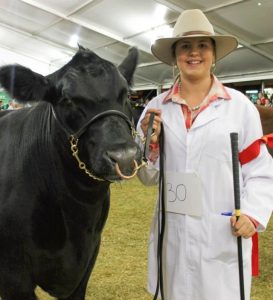 Author: Caitlin Heppner
Author: Caitlin Heppner
Community, State: Nuriootpa, SA
Age, Grade: 17, Year 11
Bio: Click here
If you were Prime Minister for a day, what would you do to help achieve gender equality? Think locally and nationally!
Gender inequality is a worldwide issue that must be addressed and remarkably, no country can say that they have yet achieved gender equality. Being Prime Minister for a day, I want to make Australia the first.
Australia’s Agriculture industry has been vital in shaping our national identity. It is also an industry faced with a significant gender bias. Sadly, in agriculture, women only represent 28% of all employees (abs.gov.au). The idea of needing a masculine figure to carry out tasks within agriculture is one that needs changing as many women are confronted and challenged by this masculine-stereotype.
My first act as Prime Minister is to appoint a new Minister for Agriculture, one who is not only a woman qualified for the job but more importantly one who has worked in the industry and has faced gender inequality. By appointing a female Minister for Agriculture, the acceptance of women in Agriculture will increase and so will the chances of more women entering this invaluable industry.
My second act as Prime Minister of Australia is to award funding and employer-incentives to training schemes that support women in agriculture as well as create several training programs and scholarships. There is a lack of training that offers the vital skills needed to work on the land, and unfortunately those that do exist are male-focussed. In a recent study, Long & Honner (Ag Consulting Co Pty Ltd) identified that women wanted specialised training for an agricultural career. Yes, the demands of the job will remain the same but with specialised training with modified methods, techniques and strategies women would have the capacity to complete their job with the same ease as men. I have experienced the difficulties of doing a ‘man’s’ job in agriculture and have found that modified techniques designed for women, dramatically improves efficiency. In my roles in the agricultural industry I have had both men and women support me along the way. Having men support training schemes and programs is just as important as having female support. We need to change people’s attitude because at the end of the day if a farmer refuses to hire women, why would he listen to another one?
My third and final act as Prime Minister focusses on my local community. The Barossa Valley is very traditional, and even today, has defined gender roles. Recently, an image came to my attention that highlighted the fact that stereo-typically men ‘bust-their-guts’ to support their wives. There will be a day of recognition where each male in my local community will be required to undertake a stereotypically female job and vice-versa to raise gender inequality awareness. Swapping gender roles gives everyone a chance to understand just how much of an importance each gender has thus improving acceptance and equality.
Specialised training programs and scholarships can dramatically improve the interest, entry and success rates for women in agriculture but most importantly increase the number of skilled employees; a trait that is of increasing importance. And we, as women can do it!
Abs.gov.au,. ‘4102.0 – Australian Social Trends, Dec 2012 – MEN AND WOMEN ON THE LAND’. N.p., 2012. Web. 3 Aug. 2015.
Jeanette Long, and Sharon Honner. Engaging Women In Agricultural Training. 1st ed. Ardrossan: Ag Consulting Co Pty Ltd, 2006. Web. 15 Aug. 2015.

The South Australian winner is proudly sponsored by the Government of South Australia Office for Women.
